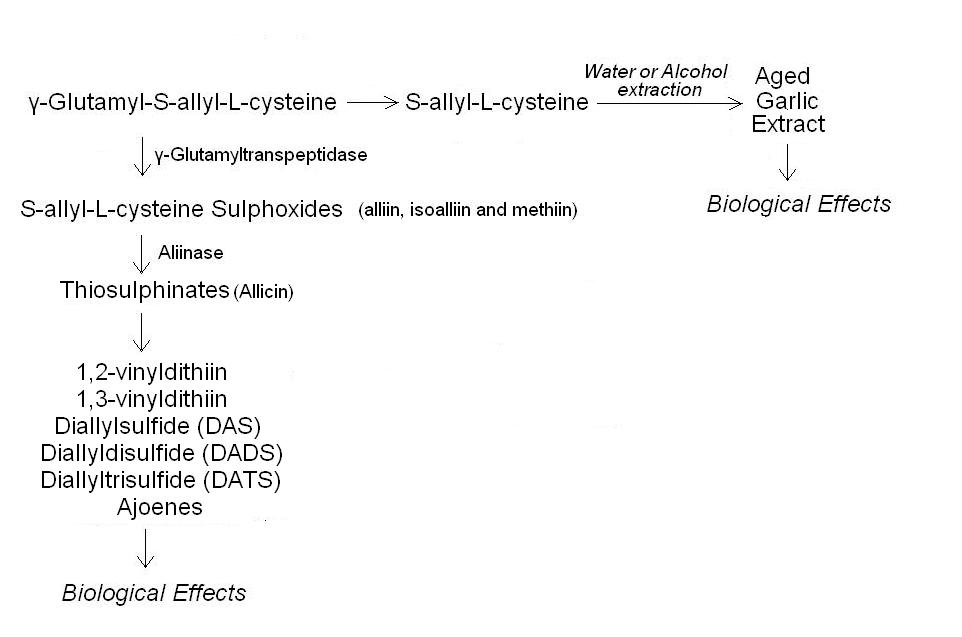Garlic contains a number of cysteine sulphoxides, known as alliin, isoalliin and methiin. These compounds are primarily odourless and are stored within vesicles in the cytoplasm. Upon crushing, the cysteine sulphoxides are converted to volatile thiosulphinates known as allicin, which is responsible for the characteristic odour of garlic. This step is accomplished by release of the enzyme alliinase from vacuoles, and is inhibited by heating the garlic (here). Alliinase is extremely abundant in raw garlic and makes up 10 % of the protein content. Allicin is unstable and undergoes a series of non-enzymatic reactions to form a number of metabolites including 1,2-vinyldithiin, 1,3-vinyldithiin, diallylsulphide (DAS), diallyldisulphide (DADS) and diallyltrisulphide (DATS) and ajoene (figure 1). These volatile non-enzyme derived metabolites of allicin are thought to be responsible for the beneficial health properties attributed to garlic.
Figure 1. The main metabolic reactions in the formation of bioactive garlic metabolites.
The optimal pH for alliinase is pH 6.5 and pyridoxal phosphate stimulates alliinase activity as a cofactor. Thiosuilphinates are not produced below a pH of 3.6 which indicates that they are not formed in the stomach. Allicin is not thought to be responsible for any of garlic health benefits. Water or alcoholic fermentation of garlic, as occurs in some commercial preparations (such as aged garlic extract; AGE), produces an extract that contains high amounts of the water soluble organosulphur compound S-allyl-L-cysteine (SAC) as well as trans-S-1-propenyl-L-cysteine, and small amounts of S-methyl-L-cysteine (figure 1). S-allyl-L-cysteine is converted from γ-Glutamyl-S-allyl-L-cysteine, a precursor of alliin. S-allyl-L-cysteine provides protection against oxidation, free radicals, cancer, and cardiovascular diseases are used in non-odour garlic supplements such as Kyolic. S-allyl-L-cysteine is present in whole raw garlic but has generally been ignored by research.
RdB

